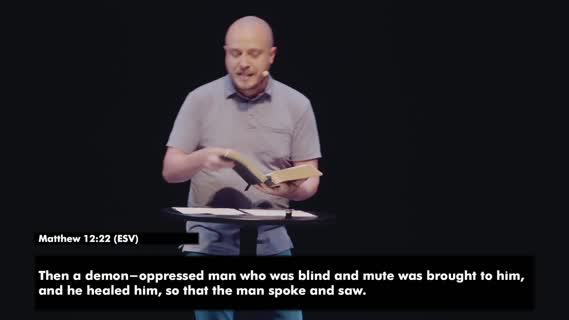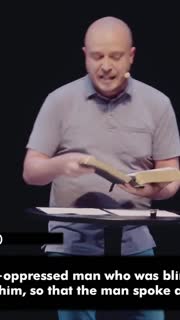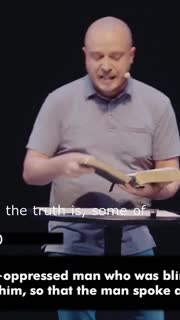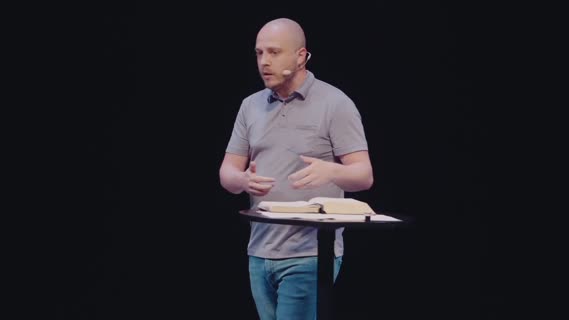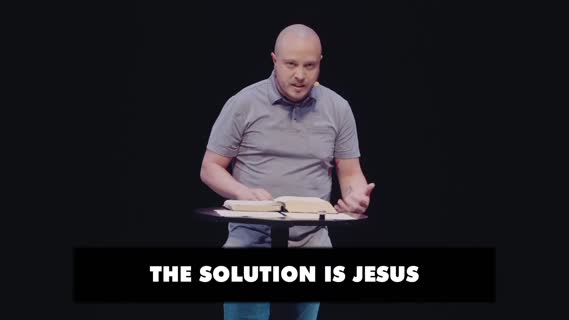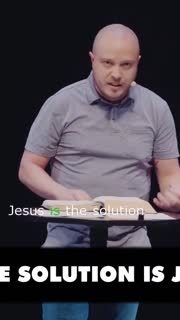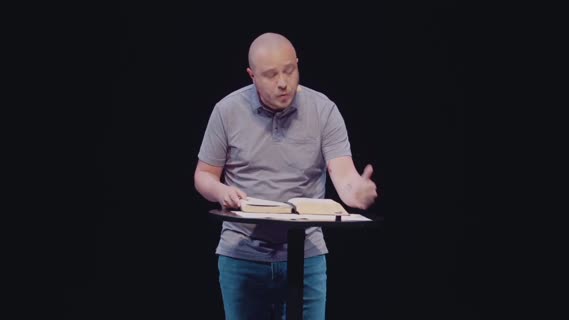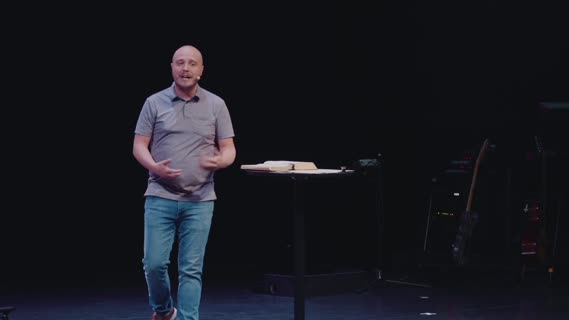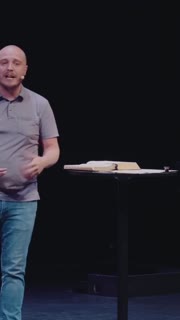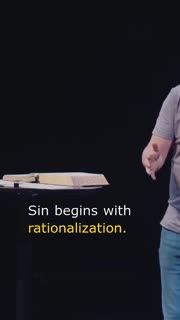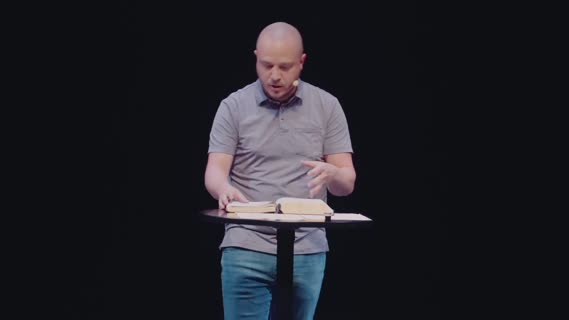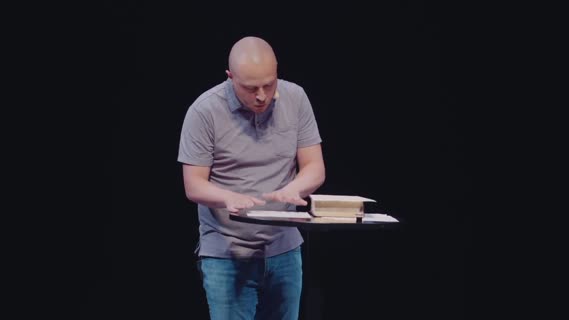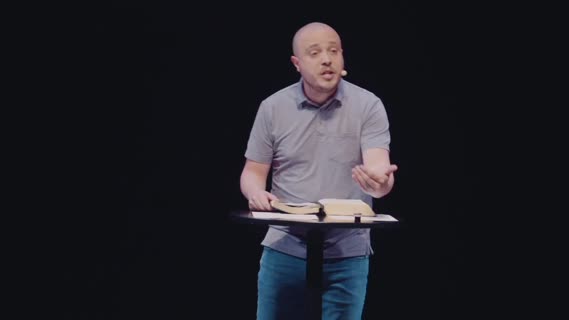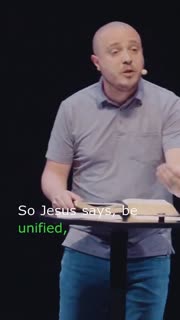Understanding the Spiritual Realm and Our Response
Devotional
Sermon Summary
Bible Study Guide
Sermon Clips
### Quotes for Outreach
1. "The truth is, some of us, some of you in here today may consider yourselves atheist, agnostic, maybe naturalist. You believe in the idea that there's basically this life and there's nothing more. There's just the things that we can see, taste, touch, feel, things like that. There's the matter and there's really nothing else. And the Bible has challenged us in that. The Bible infers or assumes that there's such a thing as demons and Satan and angels and God. And so the first thing that we have to understand, the first reality that we need to understand is that there's such a thing as that there is a spiritual realm. There is a spiritual reality that is happening all around us." [01:11]
2. "The only real explanation that makes sense is that because that was put inside of you by someone or something that supersedes the natural, by something that is supernatural. You and I have a sense of morality and justice about us, no matter how skewed it may be in the moment, that says, this is what I need to be. This is how I need to act. This is what I need to say. Animals don't do that. Animal instincts don't do that, right? They just, you know, they live, they eat, they try not to die. The zebra's not going, why is this lion chewing on my leg, right? They're not asking, where do I go when I die? Is there a heaven? How do I get saved? Animals don't do that." [03:32]
3. "The solution very simply is Jesus. Jesus is the solution to whatever sin or evil or addiction that we're involved in. Whether it's something as explicit as alcohol or drugs or pornography or something as, you know, kind of internal as vanity, materialism, greed, whatever gods or idols that we're struggling with, that we're being influenced by, that we're being possessed by or oppressed by those things that hold you back. We read in the story that Jesus, the person comes to Jesus and Jesus heals him. Jesus is the one with the power. Jesus is the one that can change you. Jesus is the one that can transform you, that can, sanctify you." [08:28]
4. "True Christianity that follows Jesus is about justice and mercy and love and compassion. Our yes is yes. Our no is no. And the fact is, is that when that happens, there's a response to that. There's a response to that. We read in verse 23 and all the people were amazed and said, can this be the son of David? When Jesus comes in and affects your life, you're amazed by it, right? You're like, man, I want to follow him. Can he be the Messiah? He freed me from this. I want him. I want him to turn my life over to him. And that's what we want to see. That's why we do this." [09:43]
5. "The truth of the matter is sometimes you do a good thing and good things don't always happen. Sometimes you do, you do something good. And the problem is, is that when you do that good thing, people will kind of judge you for it. They want to turn on you. They want to destroy you. They become confrontational with you. And that's the reality of life. This guy, does it create more faith in the Pharisees or less faith in the Pharisees? Less, right?" [12:14]
### Quotes for Members
1. "Sin begins with rationalization. When you're a kid, you're told, don't do this because this will happen to you. And we grow up and we learn that, oh, if I lie, my nose isn't going to grow like Pinocchio. We realize, oh, like I sin and it's going to affect me immediately. No, it doesn't necessarily do that. Sin doesn't always operate that way. And so we go, oh, okay, well, I'm not actually hurting anybody, right? It's only me. Nobody else is being affected. What they do in their bedroom, it doesn't affect me. So don't worry about that. It's rationalization. And sin will move from rationalization to normalization. You'll say, well, everybody's doing it. So let's create a safe space for people to sin." [06:03]
2. "The fact is, is that sometimes we're, we are caught in these things and we don't know what's going on. And we don't even recognize it. We don't even know that we're doing the kinds of evil things, the kinds of things that allow the demonic to influence us. We're opening ourselves up to these kinds of things to where evil has started to affect us to the point that we don't even recognize when we're oppressed. We don't even see the possession happening within us. And so what's the answer to that? What's the solution to that? Well, the solution very simply is Jesus." [07:19]
3. "Jesus is the one who like he goes to rescue his kids. You know, he's like, I have a particular set of skills. And he goes in and he breaks face and he rescues. So Jesus goes in, he binds up the strong man and he says, go, be free. Get out of here. I bound up Satan in sin, in the cross and in the resurrection. Be free, run, get out of here. This is not safe for you. Leave. And the problem is, is we have to accept that the freedom that we have comes not because of anything that we did. We didn't win the fight. We lost pretty much immediately, right? We were immediately caught up in sin and oppression. And Jesus is like, no, you, you have to recognize that it's my doing on the cross that freed you." [20:13]
4. "The question is, is that it's not about sinning every once in a while. It's not a sin issue. It's a salvation issue because when you sin against the Holy spirit, the Holy spirit is the one who even helps you understand that you're a sinner. The Holy spirit is the one who convicts you of your sin. The Holy spirit is the one who creates the salvation within you, who converts you, who redeems you, who sanctifies you. That's the point of this. And so if you're in here today and you're like, maybe I have committed blasphemy against the Holy spirit. If you're feeling that today, let me tell you something. You haven't, if you're feeling anxious or convicted about this, the good news is that it means that you haven't, because if you had, you wouldn't even know it." [27:30]
5. "So Jesus says, be unified, right? He says, be unified. Verse 26, he's starting to appeal to logic here. He says, if Satan casts out Satan, he is divided against himself. How then will his kingdom stand? And if I cast out demons by Beelzebul, by whom do your sons cast them out? He's talking to the Pharisees, right? He says, therefore they will be your judges. But if it is by the spirit of God that I cast out demons, then the kingdom of God has come upon you. How can you enter a strong man's house and plunder his goods unless he first binds the strong man, then indeed he may plunder his house." [19:00]
Ask a question about this sermon
1. "The truth is, some of us, some of you in here today may consider yourselves atheist, agnostic, maybe naturalist. You believe in the idea that there's basically this life and there's nothing more. There's just the things that we can see, taste, touch, feel, things like that. There's the matter and there's really nothing else. And the Bible has challenged us in that. The Bible infers or assumes that there's such a thing as demons and Satan and angels and God. And so the first thing that we have to understand, the first reality that we need to understand is that there's such a thing as that there is a spiritual realm. There is a spiritual reality that is happening all around us." [01:11]
2. "The only real explanation that makes sense is that because that was put inside of you by someone or something that supersedes the natural, by something that is supernatural. You and I have a sense of morality and justice about us, no matter how skewed it may be in the moment, that says, this is what I need to be. This is how I need to act. This is what I need to say. Animals don't do that. Animal instincts don't do that, right? They just, you know, they live, they eat, they try not to die. The zebra's not going, why is this lion chewing on my leg, right? They're not asking, where do I go when I die? Is there a heaven? How do I get saved? Animals don't do that." [03:32]
3. "The solution very simply is Jesus. Jesus is the solution to whatever sin or evil or addiction that we're involved in. Whether it's something as explicit as alcohol or drugs or pornography or something as, you know, kind of internal as vanity, materialism, greed, whatever gods or idols that we're struggling with, that we're being influenced by, that we're being possessed by or oppressed by those things that hold you back. We read in the story that Jesus, the person comes to Jesus and Jesus heals him. Jesus is the one with the power. Jesus is the one that can change you. Jesus is the one that can transform you, that can, sanctify you." [08:28]
4. "True Christianity that follows Jesus is about justice and mercy and love and compassion. Our yes is yes. Our no is no. And the fact is, is that when that happens, there's a response to that. There's a response to that. We read in verse 23 and all the people were amazed and said, can this be the son of David? When Jesus comes in and affects your life, you're amazed by it, right? You're like, man, I want to follow him. Can he be the Messiah? He freed me from this. I want him. I want him to turn my life over to him. And that's what we want to see. That's why we do this." [09:43]
5. "The truth of the matter is sometimes you do a good thing and good things don't always happen. Sometimes you do, you do something good. And the problem is, is that when you do that good thing, people will kind of judge you for it. They want to turn on you. They want to destroy you. They become confrontational with you. And that's the reality of life. This guy, does it create more faith in the Pharisees or less faith in the Pharisees? Less, right?" [12:14]
### Quotes for Members
1. "Sin begins with rationalization. When you're a kid, you're told, don't do this because this will happen to you. And we grow up and we learn that, oh, if I lie, my nose isn't going to grow like Pinocchio. We realize, oh, like I sin and it's going to affect me immediately. No, it doesn't necessarily do that. Sin doesn't always operate that way. And so we go, oh, okay, well, I'm not actually hurting anybody, right? It's only me. Nobody else is being affected. What they do in their bedroom, it doesn't affect me. So don't worry about that. It's rationalization. And sin will move from rationalization to normalization. You'll say, well, everybody's doing it. So let's create a safe space for people to sin." [06:03]
2. "The fact is, is that sometimes we're, we are caught in these things and we don't know what's going on. And we don't even recognize it. We don't even know that we're doing the kinds of evil things, the kinds of things that allow the demonic to influence us. We're opening ourselves up to these kinds of things to where evil has started to affect us to the point that we don't even recognize when we're oppressed. We don't even see the possession happening within us. And so what's the answer to that? What's the solution to that? Well, the solution very simply is Jesus." [07:19]
3. "Jesus is the one who like he goes to rescue his kids. You know, he's like, I have a particular set of skills. And he goes in and he breaks face and he rescues. So Jesus goes in, he binds up the strong man and he says, go, be free. Get out of here. I bound up Satan in sin, in the cross and in the resurrection. Be free, run, get out of here. This is not safe for you. Leave. And the problem is, is we have to accept that the freedom that we have comes not because of anything that we did. We didn't win the fight. We lost pretty much immediately, right? We were immediately caught up in sin and oppression. And Jesus is like, no, you, you have to recognize that it's my doing on the cross that freed you." [20:13]
4. "The question is, is that it's not about sinning every once in a while. It's not a sin issue. It's a salvation issue because when you sin against the Holy spirit, the Holy spirit is the one who even helps you understand that you're a sinner. The Holy spirit is the one who convicts you of your sin. The Holy spirit is the one who creates the salvation within you, who converts you, who redeems you, who sanctifies you. That's the point of this. And so if you're in here today and you're like, maybe I have committed blasphemy against the Holy spirit. If you're feeling that today, let me tell you something. You haven't, if you're feeling anxious or convicted about this, the good news is that it means that you haven't, because if you had, you wouldn't even know it." [27:30]
5. "So Jesus says, be unified, right? He says, be unified. Verse 26, he's starting to appeal to logic here. He says, if Satan casts out Satan, he is divided against himself. How then will his kingdom stand? And if I cast out demons by Beelzebul, by whom do your sons cast them out? He's talking to the Pharisees, right? He says, therefore they will be your judges. But if it is by the spirit of God that I cast out demons, then the kingdom of God has come upon you. How can you enter a strong man's house and plunder his goods unless he first binds the strong man, then indeed he may plunder his house." [19:00]
